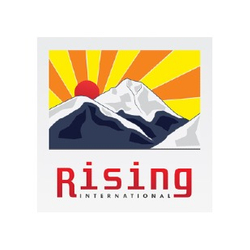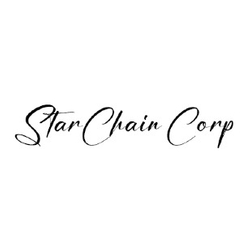
List of US Distributors

Smoking Cessation
Health care
Hookah G





Hookah G is a wholesale and retail business that sells various high-end kratom products, smoking & vaping accessories, digital scales, tobacco ...
Oregon
Manufacturer
200+
2010
Hot Selling


herbs & botanicals
Klarity Kratom






Klarity Kratom is the best brand for providing different types of kratom products. It is a famous brand in Los Ange...
California
Manufacturer
50+
Hot Selling

apparel
American Rogue


Based in the U.S., American Rogue is a men's fast fashion brand.
We don’t just carry ordinary fashion essentials; rather we carry tre...
Wholesaler
20+
Hot Selling

apparel
Rising International


Rising International is a U.S. based company with a mission to bring traditional Asian fashion to the international market.
We are proud to...
California
Manufacturer
1000+
Hot Selling

Gym Equipment
Star Chain Corp


Star Chain Corp is an industry-leading strength & fitness equipment store located in Dallas, Texas.
Since 1983, we’ve been the pr...
Texas
Manufacturer
50
Hot Selling
Wholesale distribution is an essential component of the supply chain, connecting manufacturers and retailers.
Distributors streamline the supply chain by buying products from manufacturers in large quantities.
These distributors then sell the products to various wholesale customers, including other distributors, wholesalers, and retailers.
This method not only allows manufacturers to market their products but also ensures a steady supply that meets the demand of wholesale buyers.
To give you an idea of the magnitude of the wholesale distribution business, the U.S. wholesale trade is valued at more than $12 trillion!
So, to grow your business and beat the competition, you need to work with the best US distributors among many choices.
Here are some tips on how to find them.
What to Look for When Choosing Distributors
Before buying products in bulk from a distributor, consider the following aspects:
Product Quality
Quality matters greatly when it comes to buying products in bulk from distributors.
Make sure that the products are manufactured using high-quality materials and equipment.
So, before you place a large order, consider ordering a sample to assess the quality.
Brand Value
Buying products from renowned brands through distributors can benefit your business.
Such brands already have an established customer base, making it easier for you to sell their products. This strategy can enhance your sales.
Market Insights
Thanks to their strong business relationships with industry stakeholders, distributors have accumulated significant industry experience.
As a result, they possess in-depth knowledge of manufacturing processes, the supply chain, and customer buying patterns.
Choose a distributor who can provide insights about the products and offer items that are currently in demand. Such products can address customer needs, potentially increasing your sales and revenue.
Key Trends Transforming the Wholesale Distribution Landscape
If you want to succeed in the U.S. wholesale distribution industry, you need to be aware of the latest trends influencing it.
For buyers, this knowledge can help make informed decisions when seeking distributors.
For distributors, staying on top of these trends offers a competitive edge and the opportunity to target discerning buyers.
Let’s take a look at these trends.
Focus on Sustainability
Increasing customer demand for products made with recyclable, cruelty-free, and eco-friendly materials has forced businesses to prioritize sustainability in their buying decisions.
As a result, 69% of B2B buyers prefer to buy products from sellers who follow sustainable practices.
This shift has prompted a rise in the use of sustainable materials in manufacturing across various industries. For example, the sustainable fashion market has grown, reaching a total value of $8,157 million.
Expansion to Online Commerce
Due to the COVID-19 pandemic, B2B businesses shifted to operate through online platforms.
This mode of operation persisted even after the pandemic ended, thanks to the convenience of viewing and purchasing products remotely, saving both time and travel costs.
Consequently, 83% of B2B buyers now prefer to order and pay for products online. B2B eCommerce has seen significant growth, with sales increasing rapidly through online channels.
Online wholesale marketplaces dominate B2B eCommerce sales, totaling $112 billion in 2023. Thus, embracing B2B eCommerce is essential for future success in wholesale distribution.
Increased Personalization in Marketing
B2B transactions differ from B2C because each business buyer has specific needs based on their business size, location, and clientele.
Therefore, buyers expect distributors to offer customized deals and prioritize personalization.
In fact, 83% of buyers say that personalization improves their purchasing experience.
To meet this demand, a majority of B2B marketers are investing in personalized marketing, offering suggestions based on buyer profiles and past purchases.
Such strategies strengthen the customer base by providing services tailored to individual needs.
Harnessing the Power of Technology
US distributors are adopting the latest technologies to automate both operational and marketing tasks.
By using automation tools powered by the Internet of Things (IoT) and Artificial Intelligence (AI), businesses can gain real-time insights into task progress and forecast future outcomes.
This data equips distribution firms to make informed, data-driven business decisions.
Additionally, these tools aid businesses in optimizing inventory management, supply chain operations, lead generation, and other essential functions.
Copyright 2025 Seebiz Inc. All rights reserved














